Ever wonder what the differences are between soccer and futsal goalkeepers?
A Conversation with Former Pro GK Otto Orf
Advice from former US National Futsal Team Goalkeeper on how to become a great futsal GK.
The popularity of the beautiful game of soccer is reaching new heights in the USA and the need to develop world-class soccer players has never been greater. Playing the fast-paced game of futsal is one of the greatest ways to develop better skills and has been the secret weapon of many of the world’s greatest players. Finally being recognized as an amazing way for elite players to improve their performance, playing futsal provides phenomenal opportunities for development.
Being a great goalkeeper requires so much more than a strong “athletic stance” and this often unsung hero of the game can be considered the most pivotal player on the team — after all, he or she is the last line of defense.
The skills required to succeed on the futsal court are different than on the soccer pitch, particularly for goalkeepers.
What makes a great futsal goalkeeper and how easy is it to translate skills from the outdoor game to the indoor court? We asked Otto Orf, the former U.S. Men’s National Futsal Team goalkeeper who has coached for nearly three decades to share his experience with us. Orf, who is the US Youth Futsal Director of Goalkeeping, just returned from working the top youth futsal players in the USA at the 2018 U.S. Youth Futsal National ID Trials in Kansas City.
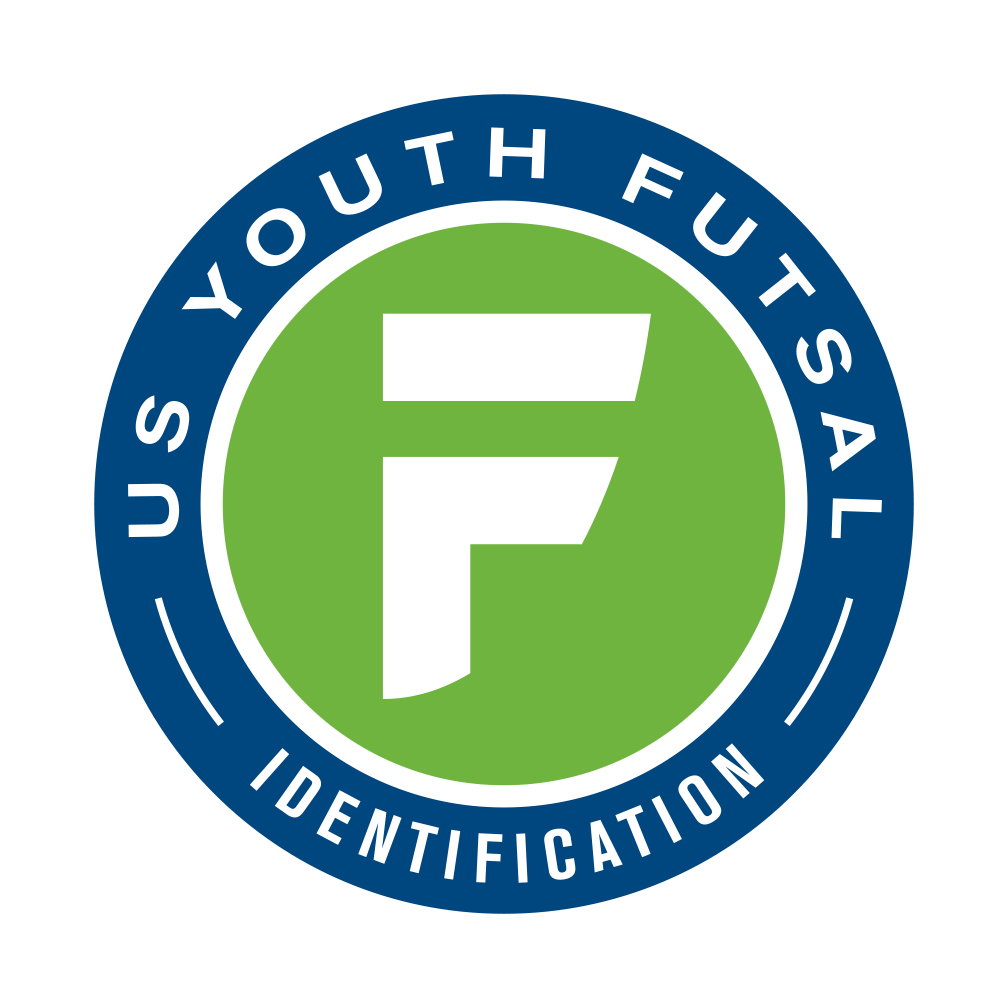 Diane Scavuzzo: What is the main difference between a goalkeeper on a soccer field and a goalkeeper on a futsal court?
Diane Scavuzzo: What is the main difference between a goalkeeper on a soccer field and a goalkeeper on a futsal court?
Otto Orf: There are many similarities between soccer and futsal goalkeepers but the major difference between the two is that the futsal goalkeeper can have much more of an impact on the offensive part of the game.
Goalkeepers Rule in Futsal
The ability to distribute directly to the other end of the court by hand or with feet, playing the ball to the keeper from kick-ins and free kicks and the ability to become part of the offense as the fifth attacker makes the accomplished futsal goalkeeper both an offensive and a defensive asset to his team.
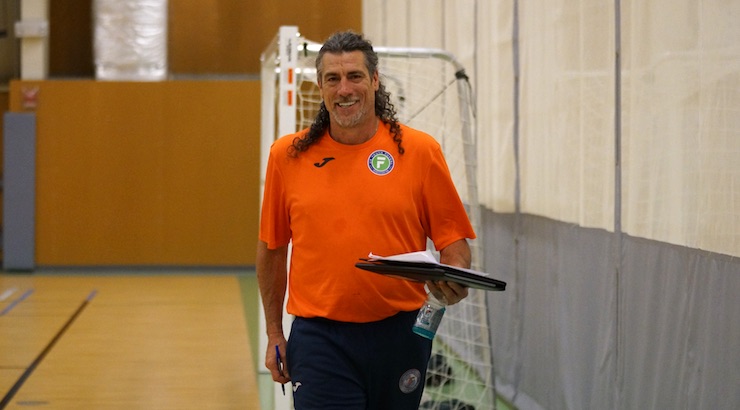
Diane Scavuzzo: Do soccer goalkeepers usually make good futsal goalkeepers?
Otto Orf: In short no, and I do not think that futsal goalkeepers automatically make good soccer keepers either.
There are sport specific skills in futsal that need to be mastered in order to be successful.
These include throwing/distribution, saving with the feet and saving with the body. One of the hardest transitions is when a futsal goalkeeper moves to the outdoor soccer season. The outdoor goal is almost two and a half times wider and it takes a solid week or so of practice to shake the habit of not diving and staying between the futsal goalposts. I had the same issue transitioning from indoor soccer to outdoor back in the 1980’s.
Diane Scavuzzo: What are the benefits of playing futsal as a goalkeeper?
Otto Orf: The top three benefits for goalkeepers are:
- Improved foot skills and distribution
- Learning how to read the game
- Increased practice on communication skills
Playing futsal also increases the quality of a goalkeeper’s distribution and foot skills.
Goalkeepers get to receive and distribute with their hands and their feet 5-10 times more often than in the outdoor game — which allows them to practice more intensely and rapidly learn from their mistakes.
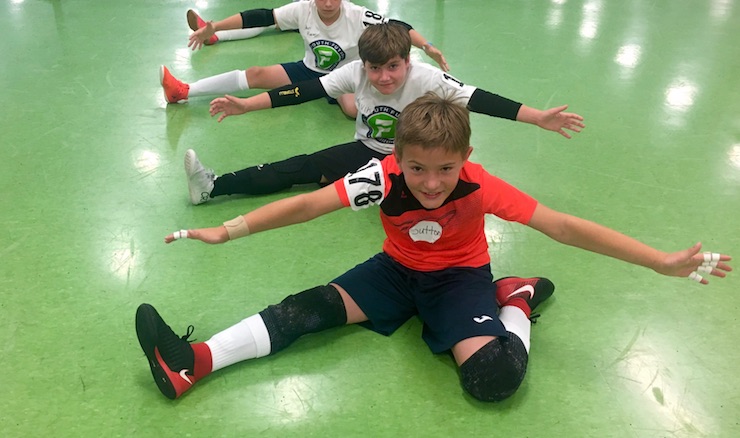
Diane Scavuzzo: How many goalkeepers attended the 2018 USYF National ID program?
Otto Orf: This year was the best year ever for goalkeeper attendance at the USYF National ID program.
48 boys and 26 girls showed up to vie for 24 goalkeeper positions on the 12 teams that will travel internationally this year.
Over the past 4 years, the goalkeepers have continued to come into the trials with more and more futsal specific skills. These include the ability to throw the ball in more of a baseball style — which delivers the ball with a lower trajectory and therefore closer to the feet of the target player.
There has also been a significant Increase in foot skills — including the toe poke, lifting or scooping the ball as well as chipping the ball.
Perhaps the most important technical improvement has been the goalkeepers’ ability to perform the split save which is something that cannot be learned in one weekend. These youth keepers have obviously been working with their coaches and have watched international futsal footage — and then worked to stretch their bodies to be able to perform this skill on a moments notice.
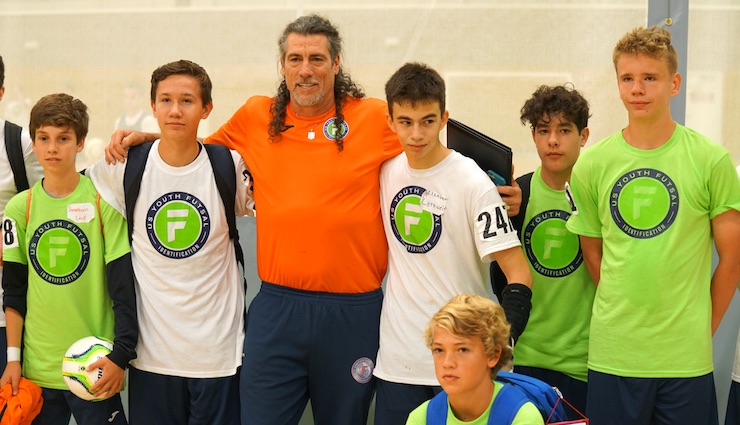
With so many qualified and prepared keepers attending the ID program this year, it made the selection process for the 2018 National Futsal teams the most difficult to date.
I specifically met with the goalkeepers after their last sessions and praised them for their efforts and to let them know they made my job harder than ever and to make sure they continued to work hard to improve regardless of whether or not they made the squad representing the USA when we traveled abroad for friendlies.
Diane Scavuzzo: What advice do you have for a soccer goalkeeper who wants to be a great futsal goalkeeper?
Otto Orf: My first bit of advice is to never give up.
Keepers have to believe in themselves.
I tell the keepers I coach that I only started to play soccer when I was 15-years-old and I was lucky enough to become a professional. In those 5 years, I worked hard to improve every day and treated every practice as if it was my game-time.
I showed the coach I deserved a chance.
If you follow this path, when you get the opportunity to play, you will be prepared and confident — and will have a great chance of succeeding.
You have to treat every practice as if it is was going to be your best game and when you get the opportunity to start, you have to be prepared and very confident.
The need for bravado, a comprehensive knowledge of angles and an understanding of soccer principles still applies — just like in outdoor soccer.
For outdoor soccer keepers who want to become great at futsal, I would advise them to get a futsal coach and learn the nuances of the game.
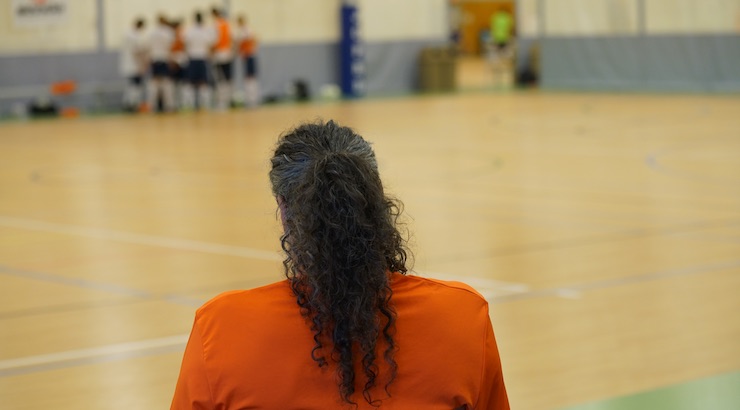
Diane Scavuzzo: What is usually your biggest challenge as a GK coach?
Otto Orf: What is most often said about goalkeepers is that are crazy. This is something you cannot coach but it is something that often has to be harnessed to help players become disciplined and consistent goalkeepers.
The biggest challenge is often communication. If a young keeper does not start to talk and command his/her defense, it can become a fatal flaw. Another big challenge is having keepers come out on breakaways and crosses and this holds true for all versions of the game. This is one of the reasons why I love the game of futsal — it provides a high frequency of opportunities and allows players to tackle challenges and learn from what is successful as well as from their mistakes.
I always try to tell young keepers that we all have different styles and must play to our strengths and work on our weaknesses.
Practice is the time to try to expand a player’s range and not be afraid to make mistakes.
In youth soccer and futsal, games at the U12 and underage should be the same.
Keepers need experience and opportunities come much less frequently for them than for field players.
If a keeper is on a great team, I always suggest getting on a neighborhood team or weaker team where they can get more opportunities to practice game situations like breakaways and crosses that are hard to emulate in training.
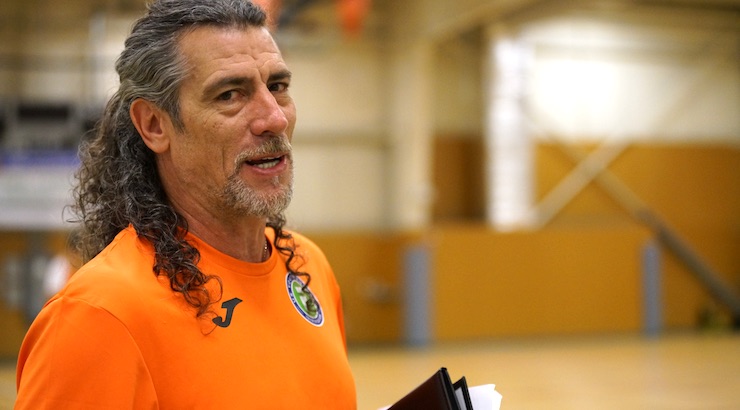
Diane Scavuzzo: What needs to change to help America win the World Cup?
Otto Orf: I wish I had the answer to that question.
I was invited to be part of a US Soccer Group Analysis last year and my suggestion for growing the game of futsal was to implement a rebirth of what I think used to be called the Olympic Festival.
For far too long, even intelligent coaches have ignored and even shunned the developmental benefits of the game of futsal.
The individual skills, the instinct to transition quickly, the use of each and every part of the foot and the ability to work within small spaces while under pressure are all inherent to the game and cannot be avoided by those who play it.
Futsal makes every player better.
And, there is one fact that no one can deny — kids LOVE TO PLAY THE GAME!
If we want to win a World Cup, we have to explore all the possible options and come up with a plan, stick to it and give it a chance to work which sometimes can be a painful process.
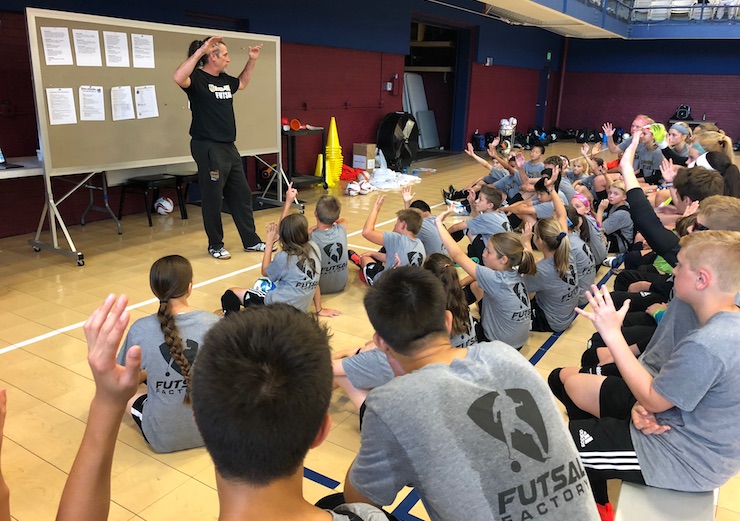
As Americans, we really don’t like to do that as we are a society of immediate gratification.
I will not be surprised if we make changes to our plan midstream once again. The one thing I know about kids is that they want to be involved and they love to play with the ball. Futsal constantly provides both so at the end of the day what could better than that.
Diane Scavuzzo: What is your background?
Otto Orf: I grew up a hockey goalkeeper and baseball player in Western New York and went to college to pitch baseball. Little did I know that the baseball throwing technique and hockey goalkeeping techniques would someday become a very important part of my indoor/futsal goalkeeping style.
I started playing soccer for the first time in my sophomore year of high school.
The coach made me a goalie because I had no skills with my feet.
I watched what the other players did with the ball and would practice at home every day until I could do what they did.
Outdoor soccer was falling apart in the USA and I played in multiple leagues from 1984 to 1990 including LASA, USL, WSL, ASL in the US and the NSL in Canada.
Indoor soccer, the MISL had just taken the country by storm and the superstars of the game, like Steve Zungul, Shep Messing, Branko Segota, Julie Veee, Zoltan Toth, Joe Papaleo and Victor Nogueira were the players I admired.
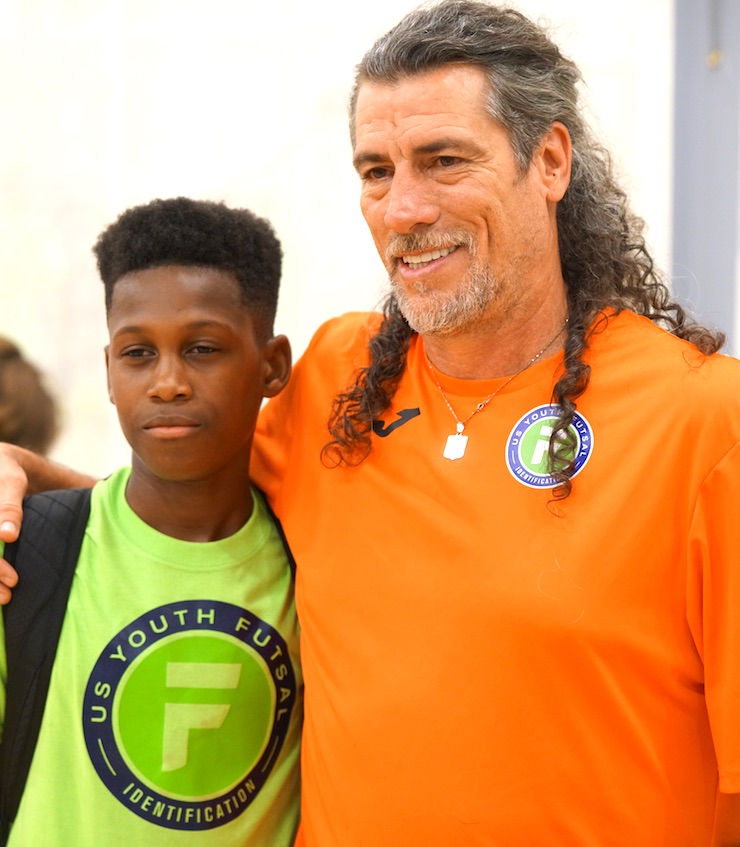
In 1984, I played with the San Diego Sockers and I was amazed to be the teammate or opponent of many of the superstars I looked up to.
I was invited to try out for the US National Futsal Team and I made the team. We went to Guatemala for the first CONCACAF Futsal Championships and I received the Goalkeeper of the Tournament award and we won the Gold, which qualified us for the 1996 Futsal World Cup in Spain.
I continued to play in Costa Rica at the 2000 CONCACAF Championships and at age 40, I played my last time with the US National Team, winning the Futsal Gold Cup in Anaheim, CA.
I am proud to say that I am a fan as much as a player and that much of my indoor soccer and futsal career has been playing for and against coach Keith Tozer.
It is great to continue to work with him to help this international version of indoor soccer take hold here in the US.
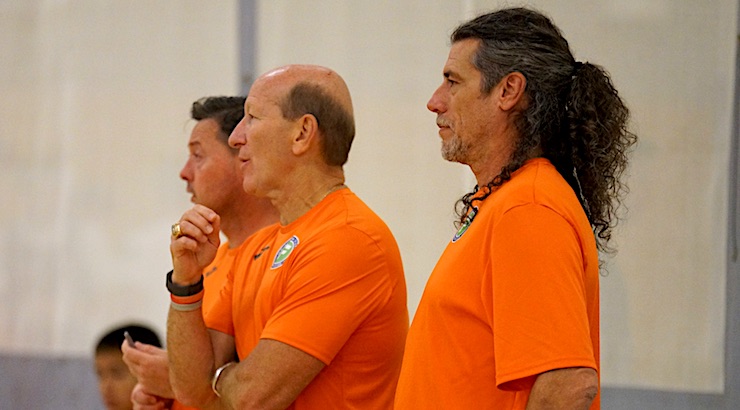
Diane Scavuzzo: What are you doing now?
Otto Orf: I have almost completely devoted my professional life to futsal and I am giving all I can back to developing the game here in the US.
I am the Director of Futsal for the Ohio North State Soccer Association and am also the Director of USYF Great Lakes Futsal League and the Heart And Sole Futsal Academy. I also produce a line of futsal coaching equipment www.FutsalFactory.com.
My newest endeavor is an all-futsal internet portal called FutsalCentral.com where anyone interested in futsal can access every futsal website and international futsal league.
Related Soccer News: OTTO ORF – THE POWER OF FUTSAL






